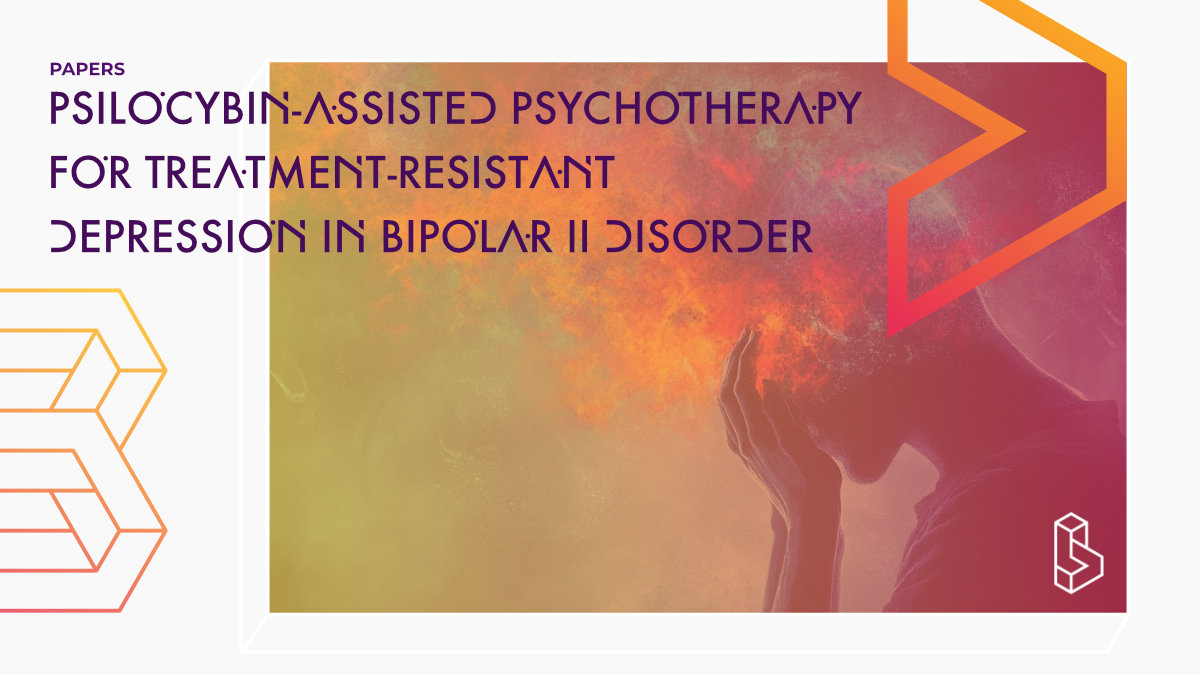This subgroup analysis of a trial on treatment-resistant depression (n=4) evaluates the safety and efficacy of psilocybin (25 mg) in individuals with Bipolar II disorder. Results show a reduction in MADRS scores from 32.5 at baseline to 21.3 at 6 months, with no emergent mania, hypomania, or psychosis, suggesting potential improvement in depressive symptoms.
Abstract of Psilocybin-Assisted Psychotherapy for Treatment-Resistant Depression in Bipolar II Disorder
“Background: Bipolar II disorder (BD-II) is often associated with chronic and treatment resistant major depressive episodes. Psilocybin has shown promise for its rapid-acting antidepressant effects, though its impact on bipolar depression remains unexplored. In the present subgroup analysis of an already published trial on treatment-resistant depression (TRD), we aimed to preliminarily evaluate the safety and efficacy of psilocybin in patients with BD-II.
Methods: Adults with TRD associated with BD-II, excluding those with psychosis were included. Participants underwent one or two psilocybin sessions, each with a dose of 25 mg, along with preparatory and integrative psychotherapy sessions.
Results: A total of four participants with a mean age of 37.5 ± 4.15 years were included. At baseline, the mean Montgomery–Åsberg Depression Rating Scale (MADRS) score was 32.5 (95% CI: 26.3–38.7, SD = 3.87). By week 2 post-dose, mean MADRS decreased to 20.3, and 2 weeks after dose 2, it further dropped to 19. At the end of the 6-month study, the mean MADRS score was 21.3. Young Mania Rating Scale scores remained stable at a mean of one throughout the study with no evidence of treatment emergent mania, hypomania or psychosis observed in any participants.
Conclusions: These findings suggest potential improvement in depressive symptoms with psilocybin administration in BD-II. Future studies with larger sample size are required to replicate our results and further evaluate antidepressant effects of psilocybin in bipolar depression.“
Authors: Shakila Meshka, Erica Kaczmarek, Zoe Doyle, Ryan M. Brudner, Fabiano A. Gomes, Marc G. Blainey, Geneva Weiglein, Roger S. McIntyre, Rodrigo B. Mansur & Joshua D. Rosenblat
Summary of Psilocybin-Assisted Psychotherapy for Treatment-Resistant Depression in Bipolar II Disorder
Will follow shortly.
Find this paper
Psilocybin-Assisted Psychotherapy for Treatment-Resistant Depression in Bipolar II Disorder
https://doi.org/10.1089/psymed.2024.0032
Paywall | Google Scholar | Backup | 🕊
Cite this paper (APA)
Meshkat, S., Kaczmarek, E., Doyle, Z., Brudner, R. M., Gomes, F. A., Blainey, M. G., ... & Rosenblat, J. D. (2024). Psilocybin-Assisted Psychotherapy for Treatment-Resistant Depression in Bipolar II Disorder. Psychedelic Medicine.
Study details
Compounds studied
Psilocybin
Topics studied
Depression
Bipolar Disorder
Study characteristics
Original Re-analysis
Participants
4
Humans
Compound Details
The psychedelics given at which dose and how many times
Psilocybin 25 mg | 2x
